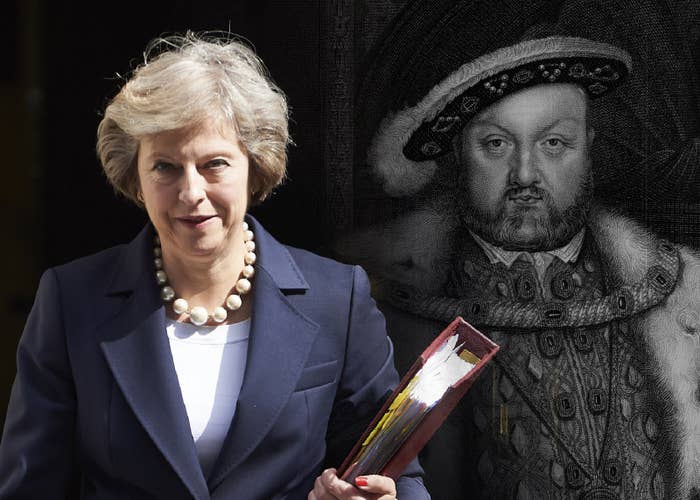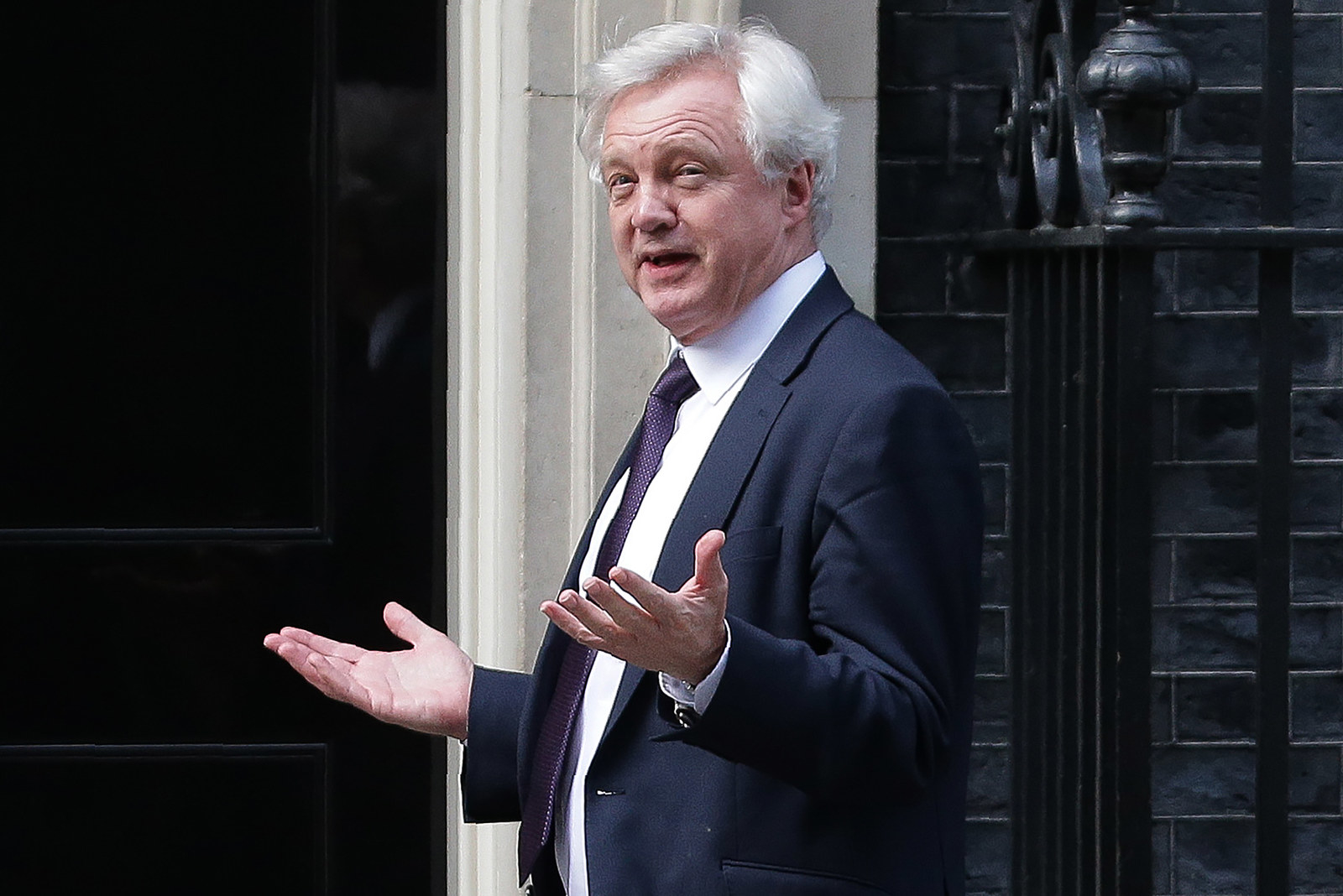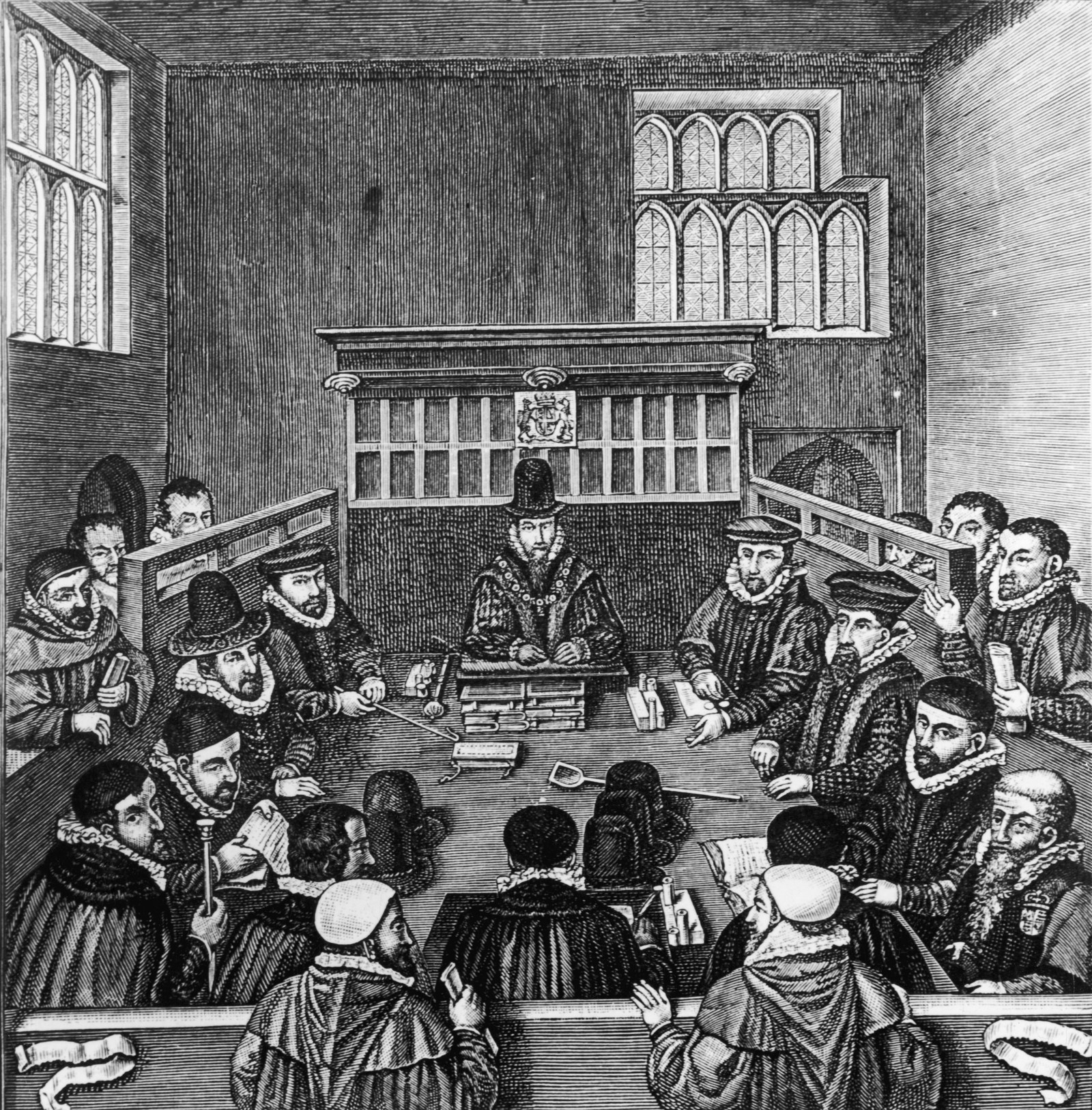A day after Theresa May began the formal process of withdrawing from the European Union, she was accused by political rivals of making a sweeping power grab worthy of Henry VIII. But, er, what does Henry VIII have to do with Brexit?

It takes some explaining.
On Thursday, the government published plans for a wide-ranging legal tidying-up exercise that will need to happen before we leave the European Union. It’s complicated, but hugely important – and controversial.

You’ll hear a lot about it in the next two years.
One of the main reasons people say they voted for Brexit was so that politicians in Westminster could make our laws, instead of bureaucrats in Brussels.

But repatriating power involves disentangling the UK from a vast web of EU laws and regulations that govern everything from free movement of people to protecting the environment.
That will be a long, technical, and hugely complicated exercise – “one of the largest legislative projects ever undertaken in the UK”, according to the House of Commons library. So intertwined have British and EU law become over the last 40 years that the government doesn’t even know exactly how many EU laws there are that apply in the UK.
To minimise disruption and uncertainty for businesses and voters as we go through this process of disentangling from the EU, the government plans to transfer just about all of the EU laws across to the UK statute book. That way, Theresa May says, “The same rules and laws will apply on the day after exit as on the day before.” Parliament and ministers can then, over time, go through the thicket of rules and decide what it wants to keep and what to discard.
The government’s mechanism for doing that is the so-called great repeal bill.

This sweeping piece of legislation will do three things, according to a white paper published on Thursday.
First, it will repeal the European Communities Act 1972 (ECA). That’s the far-reaching piece of legislation under which laws made in Brussels were given supremacy in UK law. Second, it will convert EU law into British law.
As the white paper states, simply getting rid of the ECA would create massive legal confusion. That’s because many of the laws that we follow in the UK that were made in Brussels weren’t actually set down in UK legislation – they automatically applied under the ECA. They include certain workers’ rights, environmental protections, and rules designed to stop companies exploiting consumers.
When the ECA is repealed, these laws will cease to apply, potentially leaving huge black holes in the statute book. Since the government wants to have continuity, without the laws and protections that apply to companies and voters now abruptly ceasing to exist on the day we leave the EU, laws already in place “will be converted into domestic law by the bill and will continue to apply until legislators in the UK decide otherwise,” the white paper says.
The European Court of Justice will continue to have an influence, to the dismay of Brexiteers who want the court to have no further say over British affairs. Although the UK’s Supreme Court will become the ultimate arbiter of disputes here after we leave the EU, the white paper states that ECJ rulings will still be binding on UK judges when they’re deciding cases that fall under laws derived from the EU, until parliament overturns those decisions by making new laws.
It's not enough, however, for the government to merely transpose EU laws into the UK statute book. Many of those laws simply won’t work after we leave the EU because they’re tied to EU institutions or agencies to which the UK will cease to belong. Ministers will have to go through and tweak thousands of laws so that they’re still operative.
...and that’s where Henry VIII comes in.
The third function of the great repeal bill is to give ministers the power to adjust the laws through secondary legislation. Under our parliamentary system, the government is delegated the power to make quick adjustments to laws without going through the lengthy process of passing primary legislation, typically through a mechanism known as statutory instruments. This is sometimes known as giving the executive “Henry VIII powers”, in reference to the way the monarch bypassed parliament to get what he wanted without scrutiny from legislators.
In Thursday's white paper, the government insisted ministers will have to have these powers so that it can tweak EU-related laws so that they work after Brexit. This is just one of a range of incredibly complicated issues the UK has to sort out over the next two years. Here's a handy reminder of some of the most pressing:
Between 800 and 1,000 corrections to the law will have to be made through statutory instruments, the document estimates. Given the limited time the government has to get ready for leaving the EU, it wouldn’t be practical for all of this to go through the full parliamentary procedure.
But such delegated powers are hugely controversial.
The government says it will only use secondary legislation to address deficiencies in the EU laws it is transposing into the statute books – not to introduce major policy changes. Any really big changes to areas such as immigration, customs, and trade will be introduced through a series of bills that will go through full parliamentary scrutiny.
Critics aren't convinced. Opposition politicians, rights groups, and unions are concerned the great repeal bill will give the executive extraordinarily broad discretionary powers, which ministers might be tempted to use to toss out laws they don’t like without anybody noticing.
There will be pressure on the government to do so, they argue. Eurosceptics in the Conservative party who believe Britain's economy is burdened by too much red tape from Brussels won't be happy if the UK remains under the sway of EU-derived laws for long. And lobbyists are already circling in the hope of reshaping Britain's laws to make them friendlier to corporations.
Tom Brake, of the Liberal Democrats, accused May and her cabinet of “resembling a medieval court” and said they were making a “shameless power grab under the cloak of secondary legislation”.

Keir Starmer, Labour’s Brexit spokesman, said the white paper proposes giving sweeping powers to the executive without rigorous safeguards.
The TUC is concerned ministers will use secondary legislation to get rid of workplace protections like equal pay for women and rules against excessive working hours that stemmed from Europe. Liberty, the human rights group, has warned that ministers will be “handed virtually untrammelled power to make and unmake matters needing real democratic scrutiny and legitimacy”.
There are mechanisms for MPs to contest secondary instruments.

A member of the house can, for example, put forward a motion to annul an instrument within 40 days of it being set down by the government – known as a “prayer” – and have the instrument revoked if they get enough support. However, that happens rarely. In practice, statutory instruments typically don’t receive much more than cursory scrutiny by MPs. In its submission to a recent House of Lords inquiry, Liberty cited research that claimed that “only 0.01% of statutory instruments have been defeated by either House, with the last defeat in Commons taking place in 1979”.
The Liberal Democrats warned they would challenge the statutory instruments and “grind the government’s agenda to a standstill” unless there are “proper and rigorous safeguards” included in the great repeal bill.
That drew an angry reaction from the pro-Brexit Daily Mail, which in an editorial on Friday accused the Lib Dems' "pathetic little rump of MPs and pygmy leadership" of plotting a guerrilla campaign to subvert the referendum result. "The Mail hesitates to use the word treachery to describe their conduct but for a party calling itself Democrat, to act in such an undemocratic way is appalling hypocrisy," the newspaper said.
